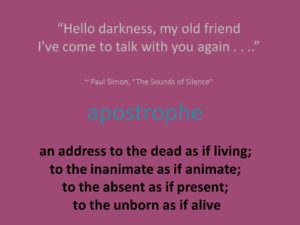[Greek] ἀποστρέφω (apostrephō), [Latin] mutare, [Latin] convertere, [Latin] tradere, [Latin] avertere:to turn away, to turn back, to put back, to avert, to return, to bring back, to pervert, to remove; Act. 3:26, Lk.23:14, Mt. 26:52, Rom. 11:26, 2 Tim. 4:4, Tit.1:14, Heb.12:25, Mt. 5:42

Background Information:
Greek Hellenism: This term means to turn away, to drive back, to divert, to dissuade, to abandon, and to desert. Xenophon’s Cyropaedia 5.5.36 states “And you will not turn away from me as you did a little while ago.” Homer’s Iliad 15.62 states “Then from that time forth shall I cause a driving back of the Trojans.” Aeschylus’ Agamemnon 850 states “We will endeavor to avert mischief of the disease.” Xenophon’s On the Calvary Commander 1.12 states ” You will put an end to their extravagance in buying expensive horses.”
Old Testament: This term is repeatedly used, focusing on the themes of restoration, turning back, returning, going home, and turning away. These examples are found in everyday situations and in God’s relationship with His people.
New Testament: This term means to turn back, to put in, to return, to incite, to turn, turn away, to deviate, to repudiate, and to divert. One must not to our back those who are in need and kinfolk. Jesus ask the servant to put his sword back in its sheath. In his betrayal, Judas returns the 30 pieces of silver to the Jewish authorities. Jesus was brought before Pilate being accused on inciting the Jews. Pilate later return Jesus to the Jews. God raised up His Servant to turn away from our godless and evil ways. One must present himself acceptable to God without deviation. There are also those who have repudiated the truth.
“Give to the one who asks of you, and do not turn your back on one who wants to borrow.” Mt.5:42
We are called to not to turn our back to those in need. We must show generosity.
“Then Judas, His betrayer, seeing that Jesus had been condemned, deeply regretted what he had done. He returned the thirty pieces of silver.” Mt.27:3
Judas regretted his actions in turning his back on Jesus.
“Pilate said, ‘You brought this man to me and accused Him of inciting the people to revolt. I have conducted my investigation in your presence and have not found this man guilty of the charges you have brought against Him.” Lk.23:14
Rhetorical device: An apostrophe is a rhetorical device where the speaker breaks away from addressing the audience in a play. The speaker speaks to an absent person or inanimate object. In Homer’s Odyssey, a narrator intrudes the story line to provide information or commentary.
Literal composition: This occurs when the poet interrupts his prose to address an absent person or when the poet inserts an “O”. Let’s not forget “Twinkle
twinkle ,little star.” The poet refers to the twinkling little star as an inanimate object. Simon and Garfunkel refer to darkness as “my own friend” in their song “Sounds of Silence”. This device is also used to from a contraction of two words.
Conclusion:
Apostrophe, mutation, mutate, trade, tradition, covert, avert
It is interesting to note the command to care for those in need comes from Deut.15:7-8. From this comes the word apostrophe. I was surprised about the many uses of turning. I never thought I would talk about “Twinkle, twinkle, little star….” in this post.
